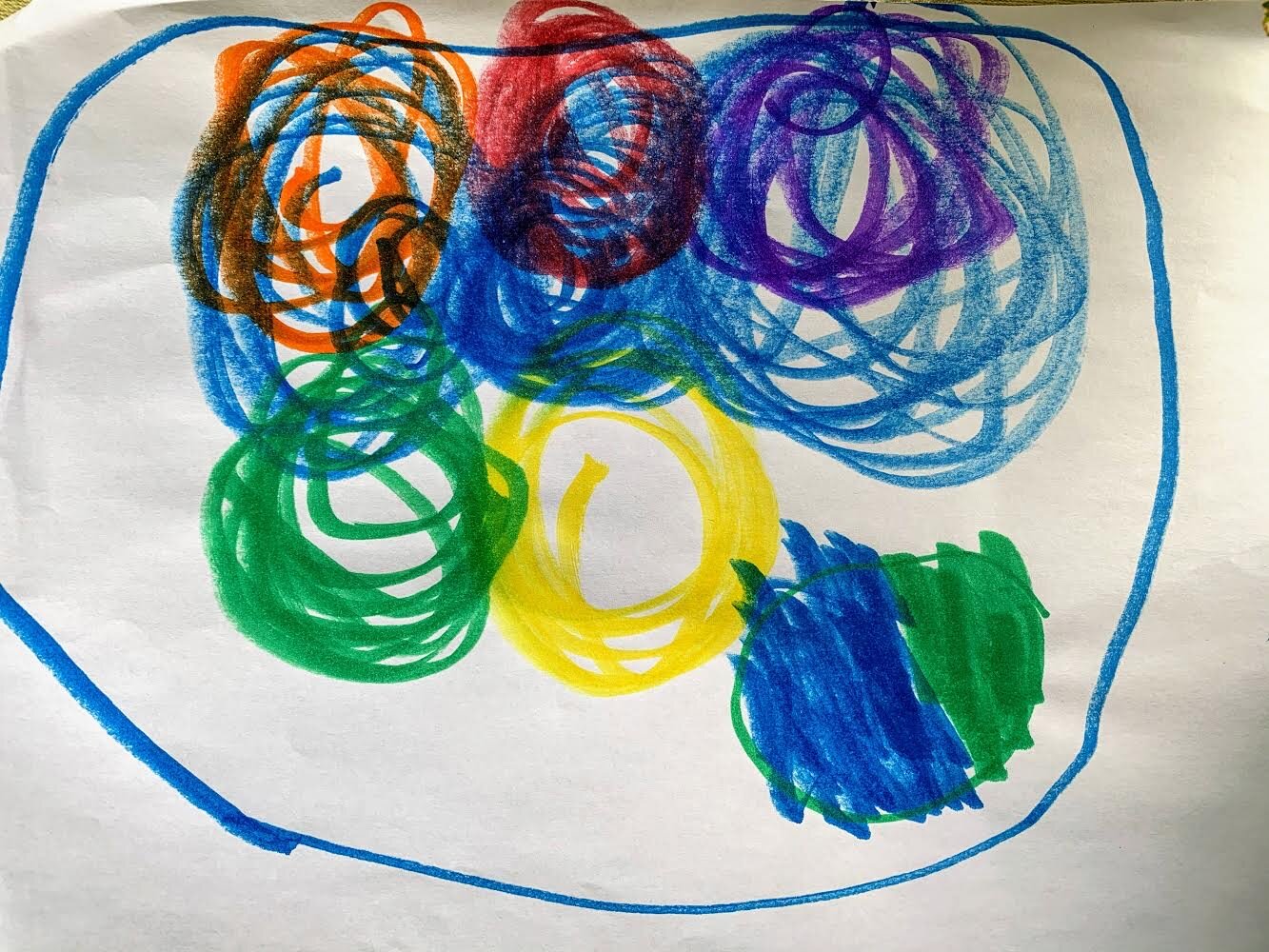Vienna, Austria, 1988
There was bread—my dad was being chased by ducks.
Edmonton, Alberta, 1990
My place of birth, and this was the first time I visited after moving away when I was just one. At the mall, there was a car store, and there was also a water park—I ate a pretzel.
Munich, Germany, 1988
My only friend was named Bastian—we couldn’t understand each other so we just raced down the street each evening. I never won, and he punched me one time.
Singapore, 1987
At the Changi Airport, my parents bought my brother the first Guns N’ Roses album, Appetite For Destruction—on cassette. I wasn’t allowed to listen to it, but I turned the skull with the top hat from the cover art into a superhero in my stick figure drawings.
Kolkata, India 1999
We were standing outside Flurys, a confectionary and tearoom, waiting for it to open. There was a huge crowd, and people started to push each other, trying to get to the front of the vanishing line. My dad was pushed, and I started to shout, telling everyone to stop. They all just stared at me—not sure if they understood me or cared or both, but after a few seconds, they started nudging each other again. At this time, they didn’t have Coca-Cola or Pepsi, but a brand known as Thums Up.
Vancouver, British Columbia, 1990
My brother’s birthplace, and my first visit—we were with our relatives, and I watched Dead Poets Society for the first time, and it was the first time a movie made me cry.
Kolkata, India, 2003
There was Coca-Cola. My grandfather no longer used his typewriter—he stayed in bed for most of the time. His library was my imagination, and I started using his typewriter just so he could remember the sounds of his own imagination.
Manchester, England, 1993
Parrs Wood High School—my fellow classmate crushed a Sunkist can on my head and pushed me back. It was a pretty day.
Kolkata, India, 1999
My grandmother, on my mother’s side, was deep into Parkinson’s disease. She would put her palm on my face—it shook, but it was full of our past memories.
Athens, Greece, 1992
At the hotel where we were staying, late at night in the lobby, we watched the Dream Team play in the Olympics in black and white. Sometimes we couldn’t watch because someone else was watching soap operas—the goal was to get to the lobby before him. I also learned how to play chess.
Kolkata, India, 1994
At the Ramakrishna Mission Institute of Culture, where my brother, dad, and I stayed—we ate toast and eggs every morning, and late at night, we watched soccer in black and white at an outdoor commons area on a semi-broken TV. I also read Jurassic Park and The Lord Of The Rings trilogy. We buried our grandmother on my father’s side.
Munich, Germany, 1988
On TV, at our flat, I watched for the first time the music video for Tiffany’s “I Think We’re Alone Now.” It made me want to go to a mall, and I remember falling in love.
Kolkata, India, 2003
They had a new donut store, and a mall which sold jeans. I miss the cows who controlled traffic rather than the traffic lights. I miss the scent of sizzling fish mixed in with freshly hand washed clothes hung out to dry on the balcony, right next to a bucket of marigolds. I miss my grandparents.
Paris, France, 1992
The Bulls were losing to the Knicks, and it was the first time I saw the works of Picasso, as we visited The Musée Picasso.
Kolkata, India, 1999
This was the last time I saw my grandmother.
Kolkata, India, 2003
This was the last time I saw my grandfather.
Lafayette, Louisiana, 2020
I was in my room, time traveling, thinking about how the past has all led to this moment. And now, all I can see are marigolds.
Shome Dasgupta lives in Lafayette, LA. Some of his previous books include The Seagull And The Urn (HarperCollins India) and Anklet And Other Stories (Golden Antelope Press), and his forthcoming books include Spectacles (Word West), and Iron Oxide (Assure Press). He can be found at www.shomedome.com and @laughingyeti.




















